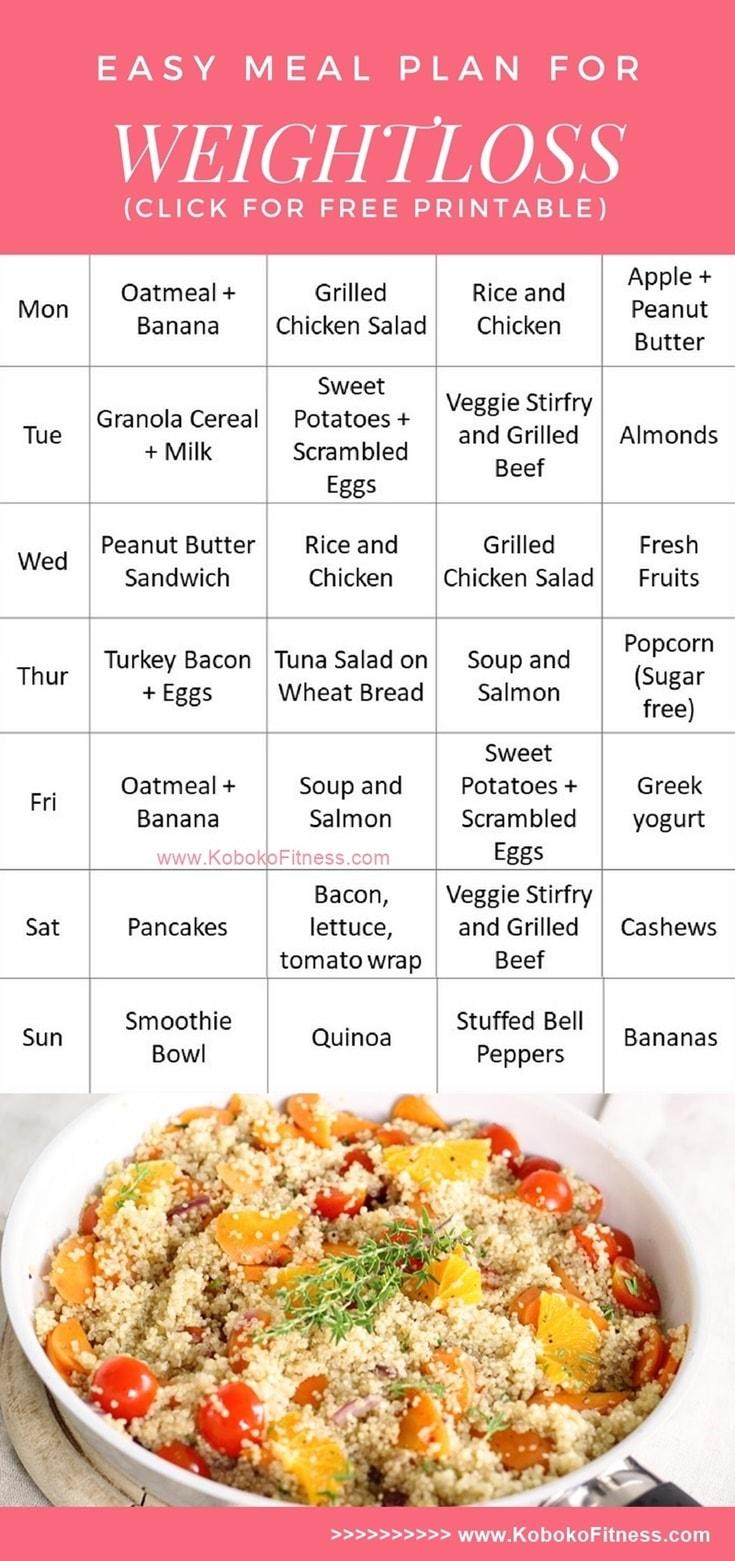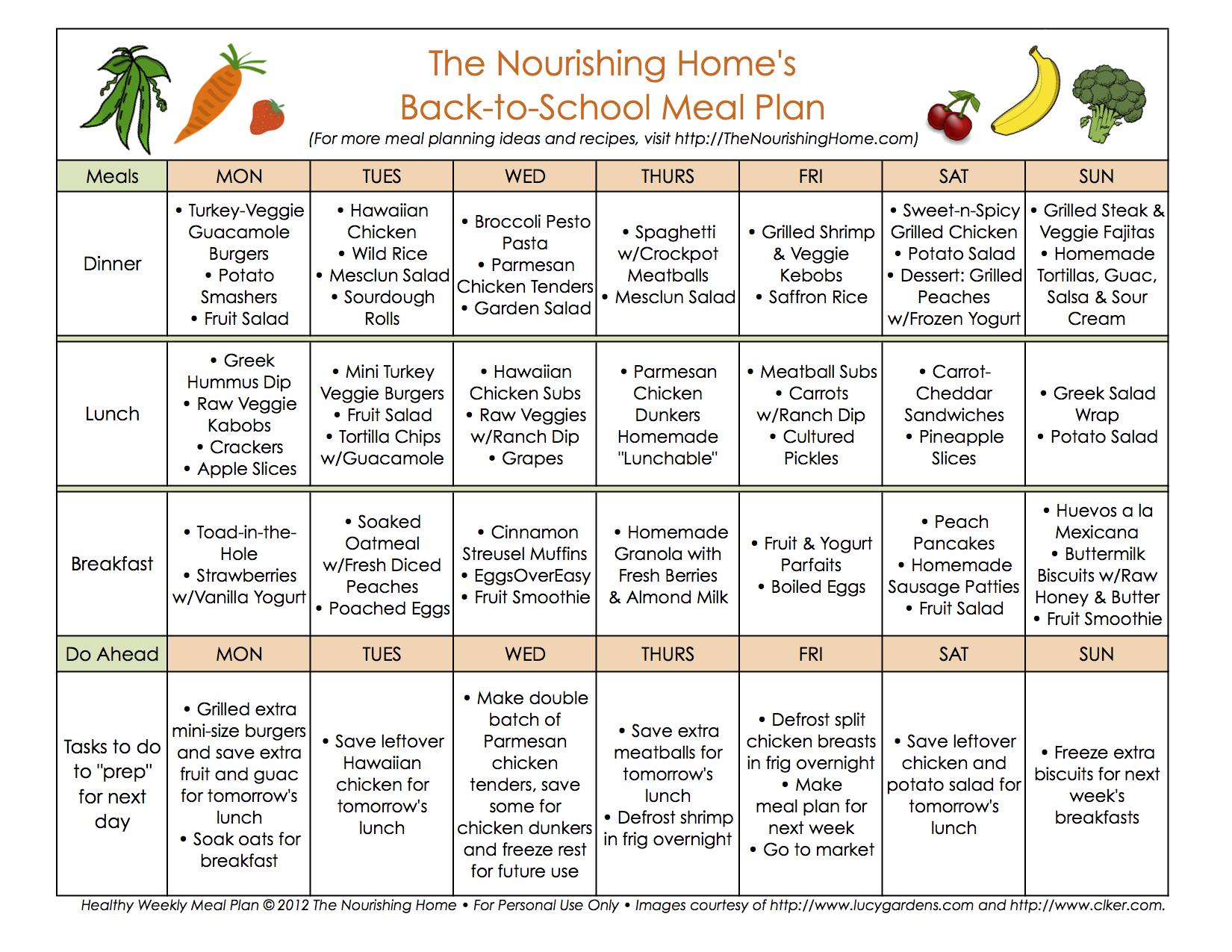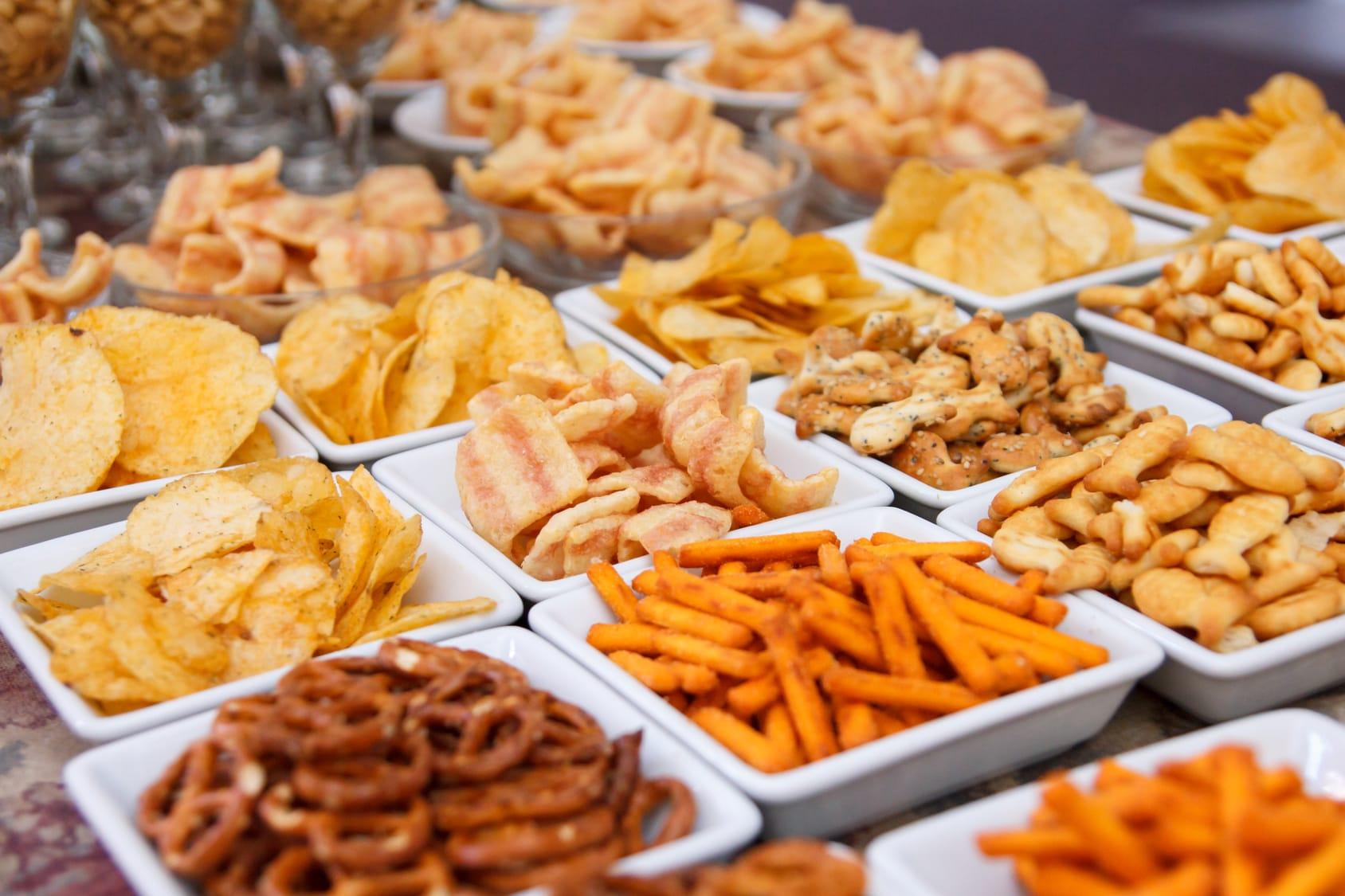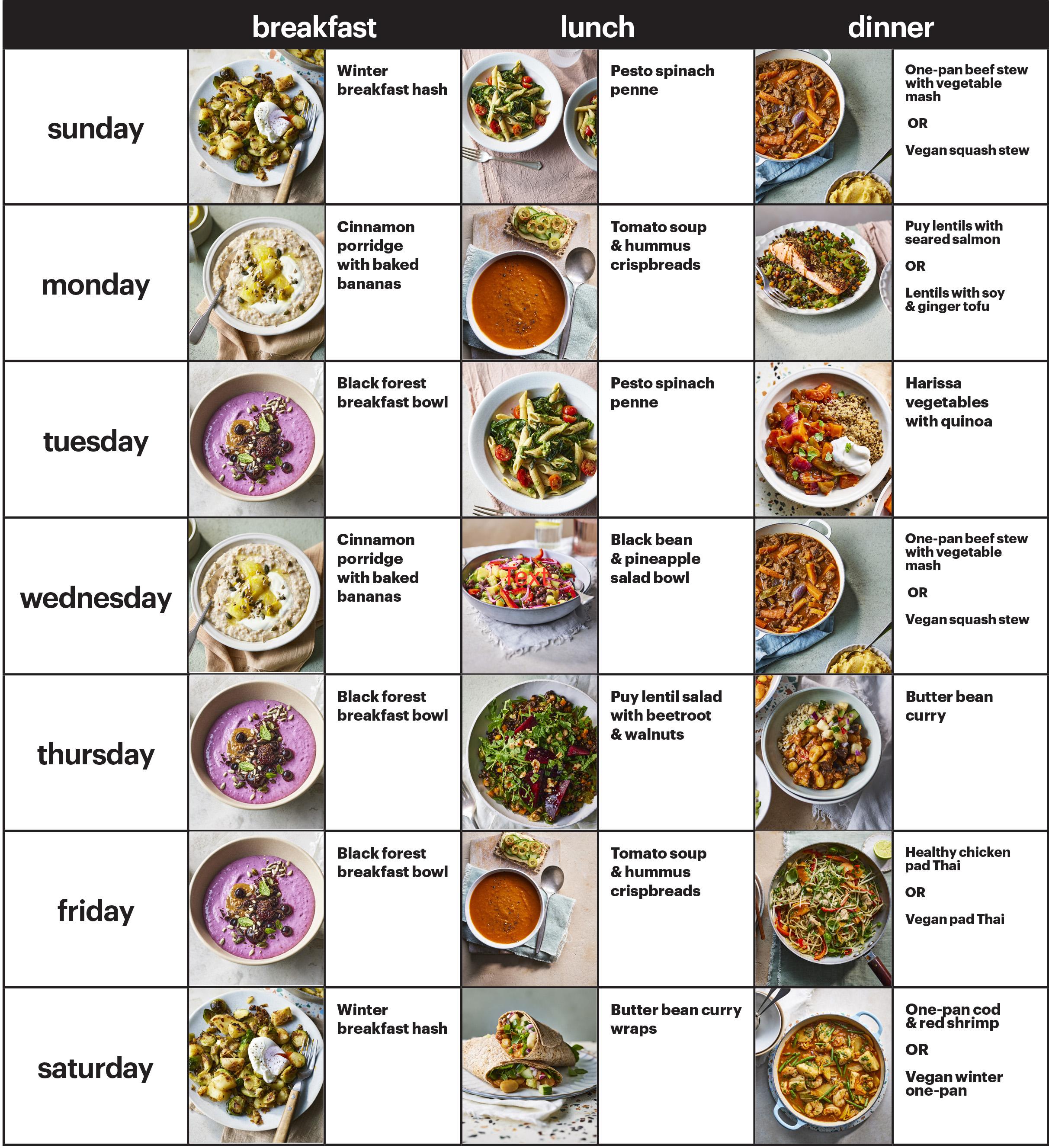Are you tired of trying weight loss diets that leave you feeling deprived and frustrated? You’re not alone! Many of us have been there, juggling busy schedules, social events, and the never-ending cycle of dieting fads. It can feel overwhelming to figure out what to eat and how to stay on track. In this article, we’re going to break down a practical weight loss diet meal plan that fits seamlessly into your daily life. You’ll learn about balanced meals, snack options, and tips for staying motivated, all designed to make your weight loss journey a little easier and more enjoyable. So if you’re ready to discover some helpful solutions instead of gimmicks, stick around and let’s dive in together!

Understanding the Basics of a Weight Loss Diet Meal Plan
Creating a personalized meal plan for weight loss can seem daunting, but breaking it down into manageable components makes it achievable. The core idea here is to focus on whole foods while keeping an eye on your macronutrient ratios—those are proteins, fats, and carbohydrates. Instead of adhering to a one-size-fits-all approach, consider your unique lifestyle and preferences. Do you enjoy cooking, or would you rather keep things simple with quick, no-fuss recipes? Maybe you thrive with a bit of meal prep on Sundays to set you up for the week ahead. Whatever your style, the key is to have a blueprint that feels right for you.
One common misconception is that cutting calories drastically is the best way to lose weight. However, this approach is often counterproductive and can lead to nutrient deficiencies and a slowed metabolism. Research shows that sustainable weight loss generally occurs when you create a moderate calorie deficit while still prioritizing nutrition. For example, incorporating a variety of colorful vegetables, lean proteins, and healthy fats into your meals not only keeps your plate appealing but also ensures you’re nourishing your body. Aim to fill half your plate with vegetables at each meal—a simple yet effective strategy to increase your fiber intake and lower overall calories while feeling satisfied. The CDC provides excellent tips on creating balanced meals.
Another vital aspect of a weight loss meal plan is to stay flexible. Life can throw curveballs—maybe dinner with friends or an unexpected family gathering. Instead of viewing these as setbacks, think of them as opportunities to practice balance. If you do indulge a bit more one day, just recalibrate your next meals accordingly. Tracking your food can enhance mindfulness, but it shouldn’t lead to obsession. Websites like MyFitnessPal can help you log your meals effortlessly, so you stay aware of your choices without feeling constrained. Remember, the path to losing weight isn’t just about the numbers on a scale; it’s about cultivating a healthy relationship with food that enriches your life long-term.

Key Nutritional Elements for Sustainable Weight Loss
When it comes to sustainable weight loss, many of us think about calories and portion sizes, but what about the quality of the food we choose? It’s not just about counting numbers; it’s also about nourishing our bodies with essential nutrients. Have you ever noticed how you feel more energized after a hearty bowl of quinoa and veggies compared to a sugary snack? This isn’t just in your head. Foods rich in fiber, like whole grains, fruits, and vegetables, help stabilize blood sugar levels and keep you feeling full longer. Imagine enjoying a vibrant salad packed with leafy greens and chickpeas—each bite not only satisfies your hunger but also empowers your body with vitamins and minerals. Research shows that diets high in fiber can significantly enhance weight loss efforts, especially for those aiming for long-term success (National Institutes of Health).
Next up, let’s chat about protein. It’s more than just a buzzword in diet culture; it’s a vital part of a balanced meal plan. Have you ever noticed how a grilled chicken breast or a piece of fish tends to keep hunger at bay much longer than, say, a bag of chips? Incorporating high-quality protein sources, such as legumes, nuts, and lean meats, can significantly boost your metabolism and aid in muscle preservation as you shed pounds. The magic number? Aim for about 25-30 grams of protein per meal to truly reap the benefits. Keep it fun by experimenting with different recipes—how about a spicy chickpea curry or a zesty shrimp stir-fry? Not only will you be feeding your body, but you’ll also enjoy the culinary adventure itself, making healthy eating feel less like a chore and more like a lifestyle.
And don’t overlook the importance of healthy fats! Yes, you read that right. Fats, particularly those found in avocados, olive oil, and nuts, play a crucial role in keeping our bodies functioning optimally. They help with nutrient absorption and hormone regulation, which can be particularly beneficial for weight loss when managed properly. Picture this: a luscious avocado spread on whole-grain toast topped with cherry tomatoes. Not only does it taste delicious, but it also keeps you full and satisfied. A study published in the American Journal of Clinical Nutrition highlights that replacing saturated fats with unsaturated fats can lead to better weight management. So, take the plunge into the world of healthy fats and watch your meals transform into flavorful and fulfilling experiences.

Creating a Balanced Weekly Meal Plan that Fits Your Lifestyle
When it comes to meal planning, one size definitely does not fit all. Think about your daily routine—do you have kids who need dinner promptly by six, or do you rush home from work before heading to the gym? Understanding your unique schedule is crucial. For instance, if you know that midweek nights are chaotic, consider batch cooking on Sundays to set yourself up for success. Dishes like quinoa salads or vegetable stir-fries can stay fresh in the fridge for a few days and are easy to reheat, keeping stress levels low while ensuring you’re fueling your body with healthy options. Don’t forget to include snacks—sliced veggies, hummus, or Greek yogurt can save you from those mid-afternoon crashes.
One common misconception is that losing weight means cutting out entire food groups. In reality, it’s about making informed choices and balancing your plate. A colorful plate is not only visually appealing but also signals a variety of nutrients. Aim for a mix of lean proteins, whole grains, and plenty of fruits and vegetables. For example, if you’re planning a lunch, think about packing a grilled chicken wrap with spinach, tomatoes, and a spread of avocado. This not only provides you with essential fats and proteins but also satisfies your taste buds without leaving you feeling deprived. Consider reading more about balanced diets on Nutrition.gov to deepen your understanding.
Lastly, let’s talk about flexibility. Life can throw curveballs that may disrupt even the best-laid plans. If you have leftovers from a busy night, don’t hesitate to incorporate them into your meal plan for the next few days. This practice not only minimizes waste but also saves time and keeps your mind engaged with meal creation. Remember, it’s about finding what works for you. Set aside a few minutes each week to reflect on your meals—what did you enjoy? What could be improved? This self-assessment can lead to continuous tweaks that make your plan not just balanced, but also a reflection of your personal tastes and lifestyle. Embracing this journey can transform your eating habits into enjoyable rituals rather than chores.

Smart Snacking Strategies to Support Your Weight Loss Goals
Let’s face it: snacking often gets a bad rap, especially in the context of weight loss. But slipping in a thoughtful snack can actually be a game-changer. Imagine you’re an orchestra conductor, creating a harmony between your meals and those little bites in between. Opting for snacks that combine protein, healthy fats, and fiber can keep you satisfied without veering away from your goals. Think about snacking on a small handful of nuts paired with some sliced apple, or a dollop of Greek yogurt topped with berries—you’re not just nibbling; you’re choosing fuel that nourishes. This approach not only curbs your cravings but also helps regulate your blood sugar levels, keeping those pesky hunger pangs at bay. Did you know that incorporating protein-rich snacks can reduce your overall caloric intake? A study from the American Journal of Clinical Nutrition found that individuals who consumed a high-protein snack tended to eat fewer calories making it a savvy strategy for weight management.
With all the snacking options out there, it’s essential to be selective and mindful. Next time you reach for that bag of chips, ask yourself whether you’re actually hungry or just bored. Recognizing the difference is critical. Instead of mindlessly munching, aim to prepare in advance. Batch-prepping snacks can streamline your choices and keep temptation at bay. How about cutting up vegetables and pairing them with hummus or diving into some homemade trail mix? Incorporating a variety of colors on your plate not only looks appealing but also ensures you’re getting a range of nutrients. And let’s not forget the art of portion control! Using small, portioned containers or pre-packaging snacks can help keep you on track without the worry of overindulging. Research from the Journal of Nutrition reveals that those who use smaller plates or containers tend to consume fewer calories, highlighting the importance of perception when it comes to snacking.
It’s also wise to consider the timing of your snacks. Picture this: you’ve just finished a vigorous workout, and your body is craving recovery. That’s the perfect moment for a snack, ideally within 30 minutes post-exercise. Tapping into that repair phase with something like a banana with nut butter or a smoothie can help replenish lost energy and support muscle recovery. Alternatively, if you find yourself in an afternoon slump, combining healthy fats and proteins can boost your energy and mood. Have you ever tried avocados on whole-grain toast? Talk about a brain boost! So remember, it’s not just what you snack on, but when you do it that counts. All these little choices accumulate to create a roadmap toward your weight loss goals, so let’s embrace smart snacking as a powerful ally in your journey.

Tips for Staying Consistent and Motivated on Your Journey
Consistency and motivation are the twin pillars of any successful weight loss journey. One trick to maintaining that consistent enthusiasm is to celebrate the small victories. Maybe you completed your meal prep for the week without a hitch, or perhaps you chose a healthful snack instead of reaching for the cookies on a particularly stressful day. These little achievements matter and can significantly boost your mood and motivation. But how do you keep those wins in perspective? Try keeping a journal where you jot down daily successes, no matter how minor they may seem. This simple act can create a positive feedback loop, reinforcing your commitment to your goals.
Another key to staying motivated is to surround yourself with positivity. This goes beyond just physical spaces—think about the people in your life, too. Friends who support your healthy choices and share your enthusiasm can make all the difference. Consider joining a fitness group or finding a weight loss buddy; these relationships provide accountability and also inject a sense of community into your journey. And don’t underestimate the power of digital resources; platforms like MyFitnessPal or weight loss forums can offer you both encouragement and knowledge. As they say, “You are the average of the five people you spend the most time with.” Make sure those five are uplifting!
Lastly, it’s essential to reframe your mindset about setbacks. Instead of viewing them as failures, look at them as stepping stones—opportunities for growth and learning. For instance, if you indulge in a cheat meal or miss a workout, ask yourself: What can I learn from this? Keeping a growth-oriented perspective not only alleviates guilt but also builds resilience in the face of challenges. Research from the Journal of Obesity suggests that those who actively practice self-compassion are more likely to stick to their weight loss plans in the long run. So, embrace your journey, imperfections and all, and focus on the progress you’re making as you build a healthier lifestyle.
Bringing It All Together
As we’ve explored, crafting a weight loss meal plan isn’t just about cutting calories; it’s about creating a sustainable approach that nourishes your body while aligning with your lifestyle goals. It’s about more than just numbers on a scale; it’s about fostering a healthy relationship with food and embracing a variety of flavors and nutrients that keep you energized and satisfied. Now, why not take a moment to reflect on your own eating habits? Consider what changes you can implement this week that align with your new insights. Whether it’s trying a new recipe, meal prepping for the week ahead, or simply being more mindful of your choices, every small step counts. Remember, you have the tools within you to make lasting changes, so don’t hesitate to take that leap. Let us know how your journey unfolds—sharing our experiences can be an incredible source of motivation for everyone on this path toward healthier living. You’ve got this!





